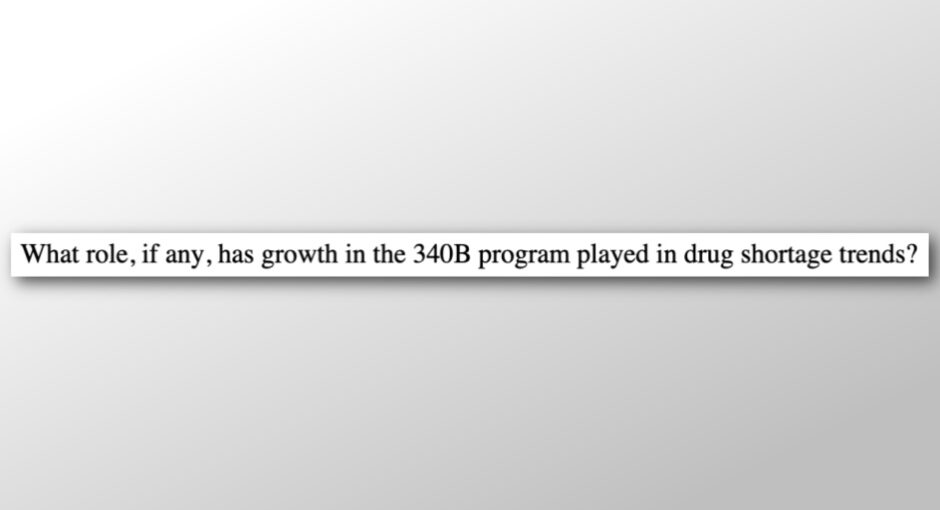U.S. House Energy & Commerce Committee Chair Cathy McMorris Rodgers (R-Wash.) and Senate Finance Committee ranking Republican Mike Crapo (Idaho) are soliciting public input on what’s driving the increase in drug shortages, including whether or not the 340B drug pricing program is contributing to the problem.
Rodgers and Crapo on Monday posted an open letter to “interested parties” seeking feedback on ongoing drug shortages, especially those affecting generic medicines. Submissions are due by July 7. Their letter says the committees are working to “pursue potential policy solutions to bolster patient access and shore up our critical drug supply chains.”
The letter asks 14 questions, including, “What role, if any, has growth in the 340B program played in drug shortage trends?”
Whether 340B causes drug shortages was a hot topic a decade ago when the drug industry revolt against 340B program growth was starting in earnest.
In September 2012, Bill Cassidy (R-La.), then a member of the E&C committee and now ranking Republican on the Senate Health, Education, Labor, and Pensions Committee, wrote a letter to a Georgia health system asking if one of its 340B hospitals was buying and hoarding 340B penny-priced fluorouracil, a generic sterile injectable cancer drug then in short supply. The system explained that the purchases that the letter cited were for the whole system, not just for the one hospital.
That November, Cassidy introduced a bill to alleviate shortages of generic sterile injectable drugs and brand sterile injectable drugs with three or fewer active manufacturers. It would have exempted them from 340B drug discounts and Medicaid rebates.
Some free-market economists were saying in newspaper op-eds and health care journal articles at that time that the 340B program and other government price controls disincentivized generic drug manufacturers from making needed capital investments. Many of the shortages then stemmed from factory shutdowns after drugs were found with glass particles, metal shavings, and other impurities.
Hospital groups and other countered that the Food and Drug Administration found no connection between 340B and shortages, that most of the drugs then in shortage were used mainly in inpatient settings and 340B is an outpatient drug program, and that most generic drugs are priced at or below 340B ceiling price.
The American Hospital Association and hospital group 340B Health both said yesterday that they planned to respond to Rodgers and Crapo’s request for input. The American Society of Health-System Pharmacists acknowledged a request for comment but was unable to respond in time for this article.
ASHP is one of the nation’s leading sources of information on drugs shortages. It says on its website that “shortages are not resolving and new shortages are increasing,” and “ongoing and active shortages are the highest since 2014.”
Shortages of local anesthetics and basic hospital drugs, albuterol solution, common oral and ophthalmic products, and ADHD treatments are affecting large numbers of organizations and patients, ASHP says. Chemotherapy drugs, often without alternatives, are increasingly in short supply, it adds.
Fluorouracil is one of the injectable cancer drugs now in short supply. It’s the same one Cassidy wrote to the Georgia health system about in 2012.


